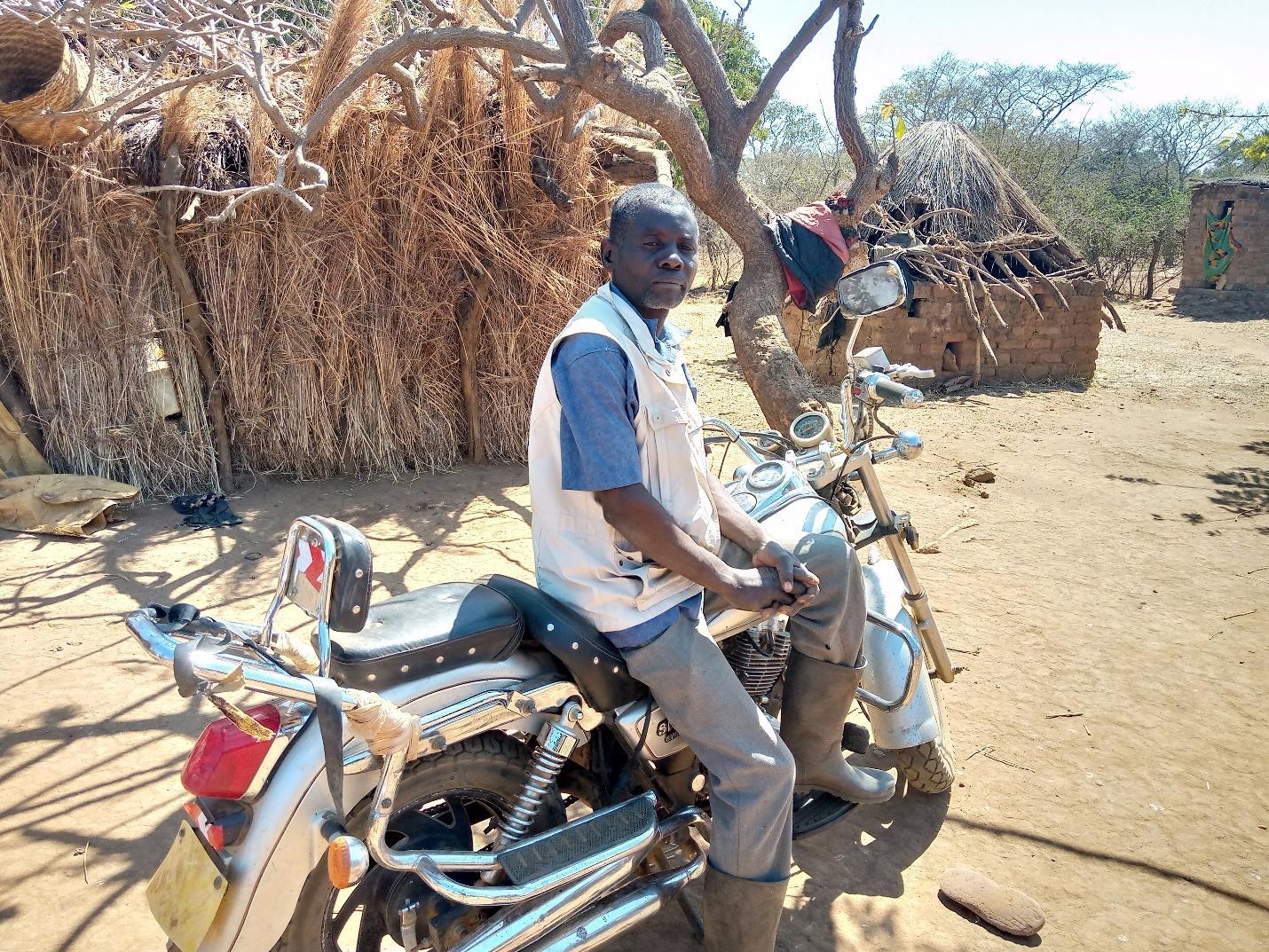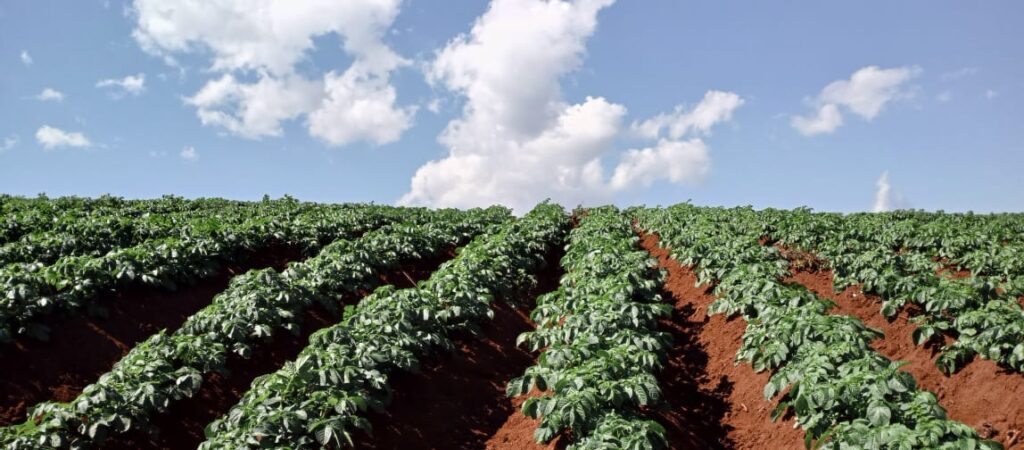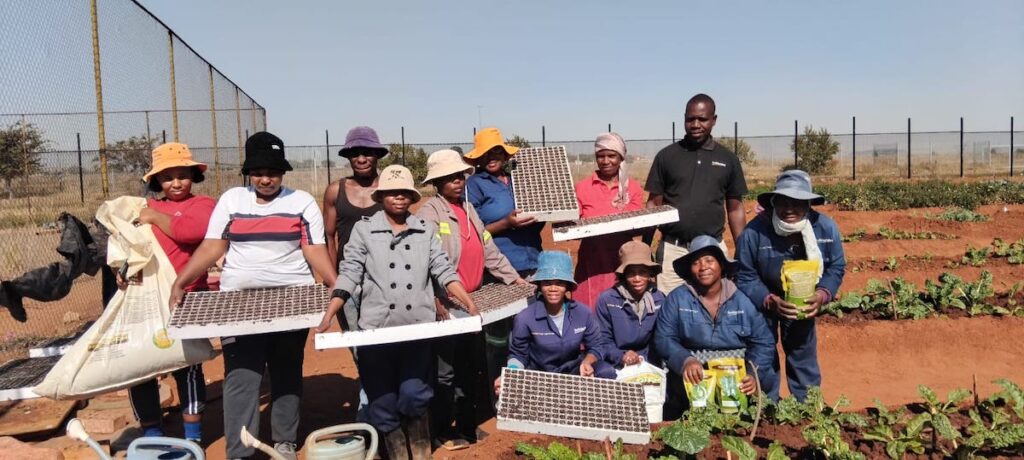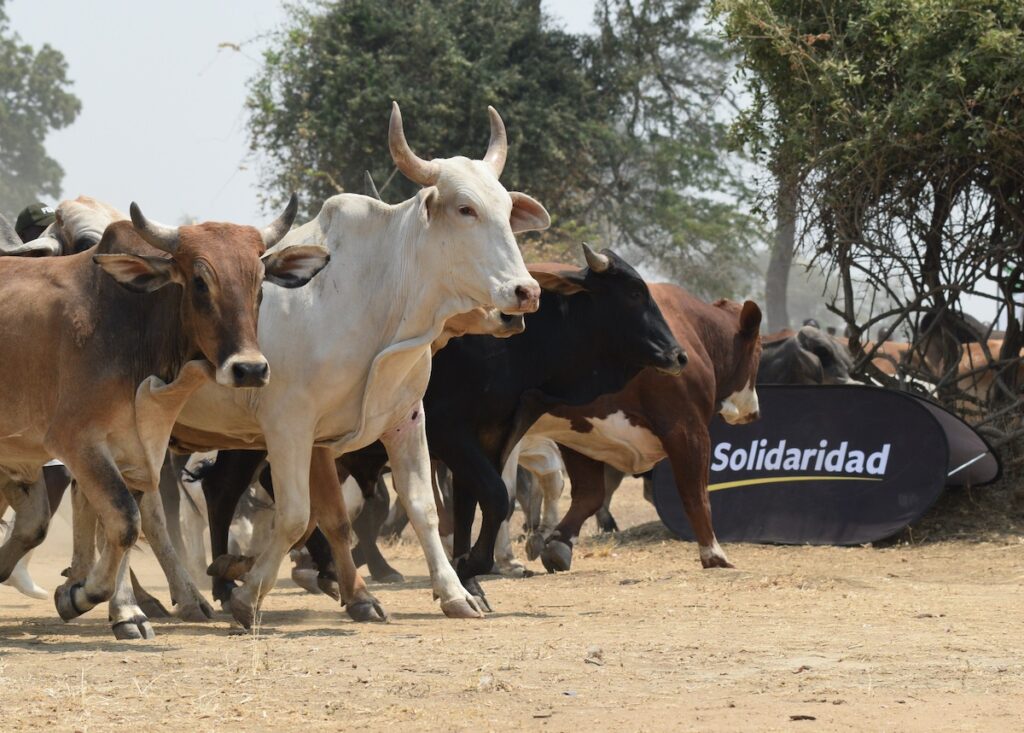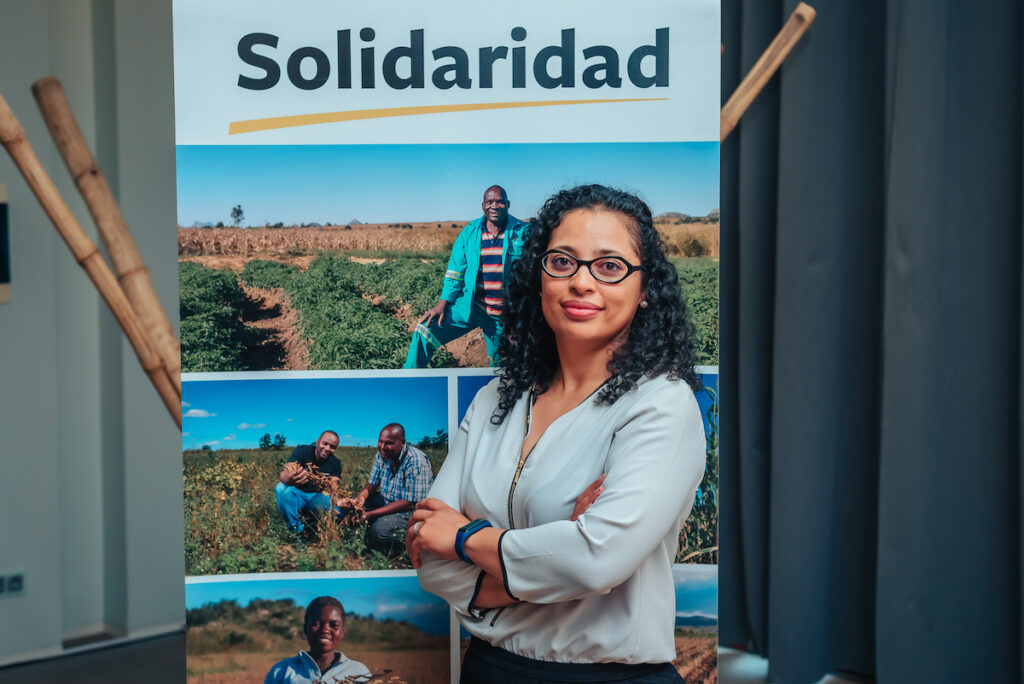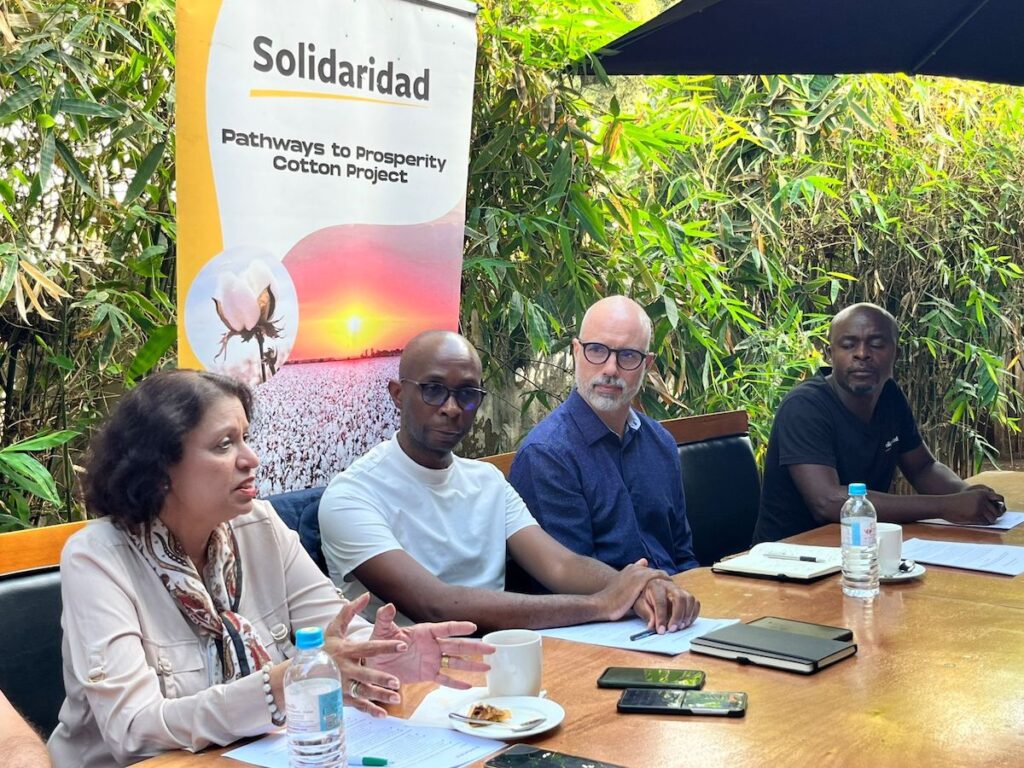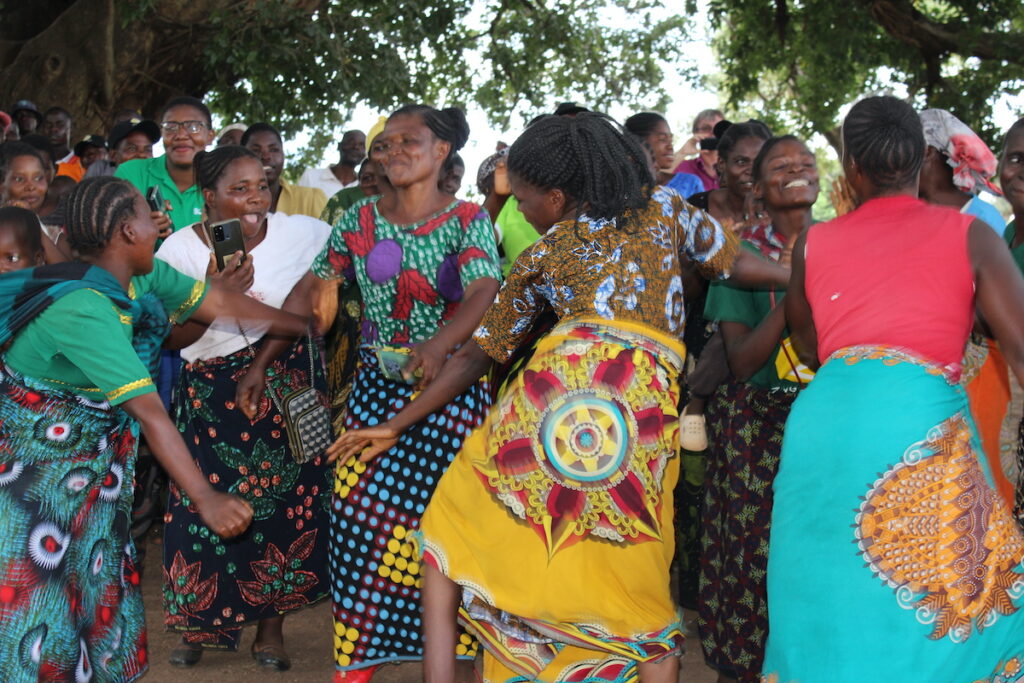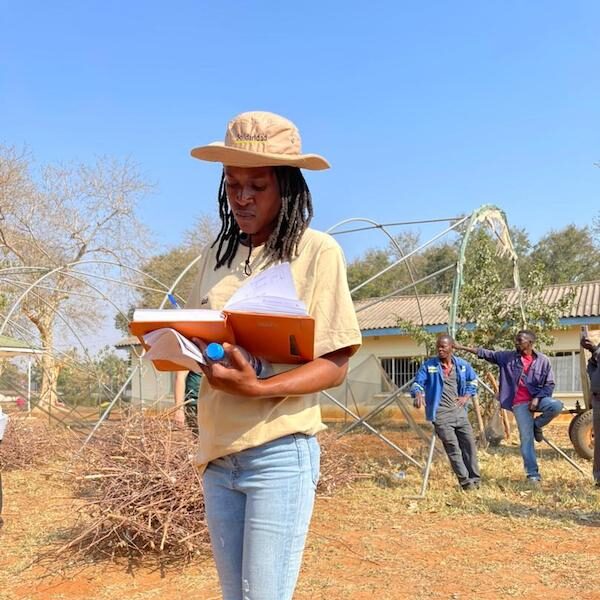The Practice for Change (PfC) Soy project identified a knowledge gap in soybean production during the inception period in 2018, noting that quality hybrid seeds were unavailable. In the same year, an assessment was conducted to identify the root cause of low yields and poor production of soybean in Katete, Zambia.
The assessment revealed that farmers, such as Mr Lyson Tembo (a smallholder farmer in Katete), did not possess the knowledge of soil fertility and structure, the farmers were using recycled seed and were not utilizing good agricultural practices. The project sought to address the issues identified by conducting training and providing technical support supervision meetings with farmers such as Mr. Tembo.
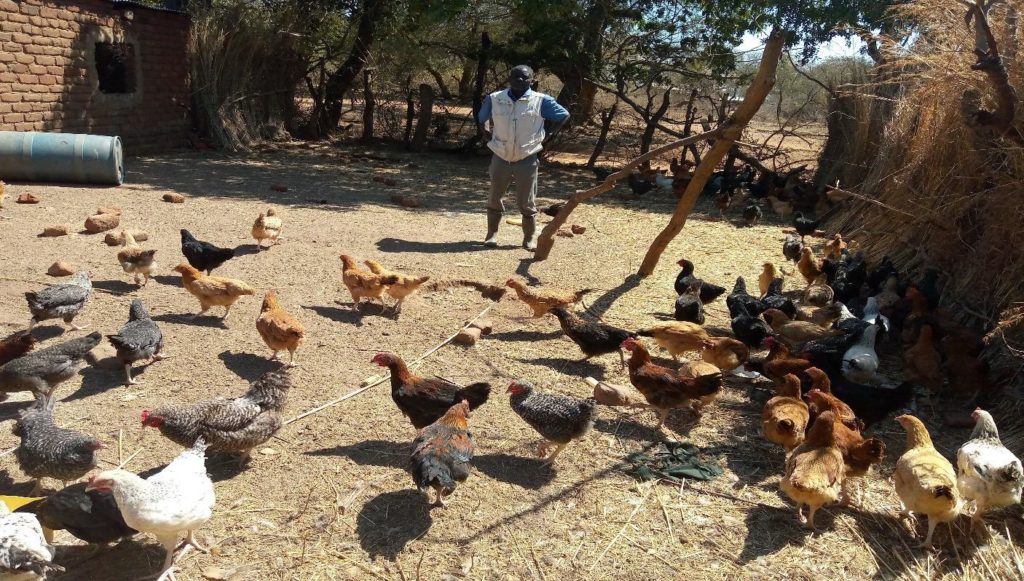
The farmers were trained in soybean production that included: seed rate, plant spacing, using herbicides for weeding as an alternative to hand weeding and the use of inoculum. Mr Tembo was among these farmers who were also trained in post-harvest.
With the support of the Kvuno labs, Mr. Tembo conducted a soil test at his farm to check on the nutritional content of the soil. An agreement with Good Nature Agro enabled farmers to acquire quality hybrid seed that suits the Katete region rain belt. The seed was collected on half down payment credit, which allowed the farmer to produce and pay the remaining balance in the form of Soybeans to Good Nature Agro. This method enabled Mr. Tembo to increase his production.
An opportunity was identified due to the high demand of soybeans products, that include: Soya Pieces, Soy Meal, Cooking oil and livestock feed. The farmer was assisted in formulating a cost benefit analysis of producing soybeans compared to maize production which he was previously producing. And after seeing the potential benefits he opted to produce soybean to increase his productivity and his income.
As a result of the project interventions, the farmer is able to support his big family of 12 children and dependents by paying for their school fees and other educational requirements which he previously struggled to do. The farmer produced 360 bags of soybeans and sold each bag at 750 ZMW. This adds to a total annual sum of 11,880 Euros during the 2020/2021 season.
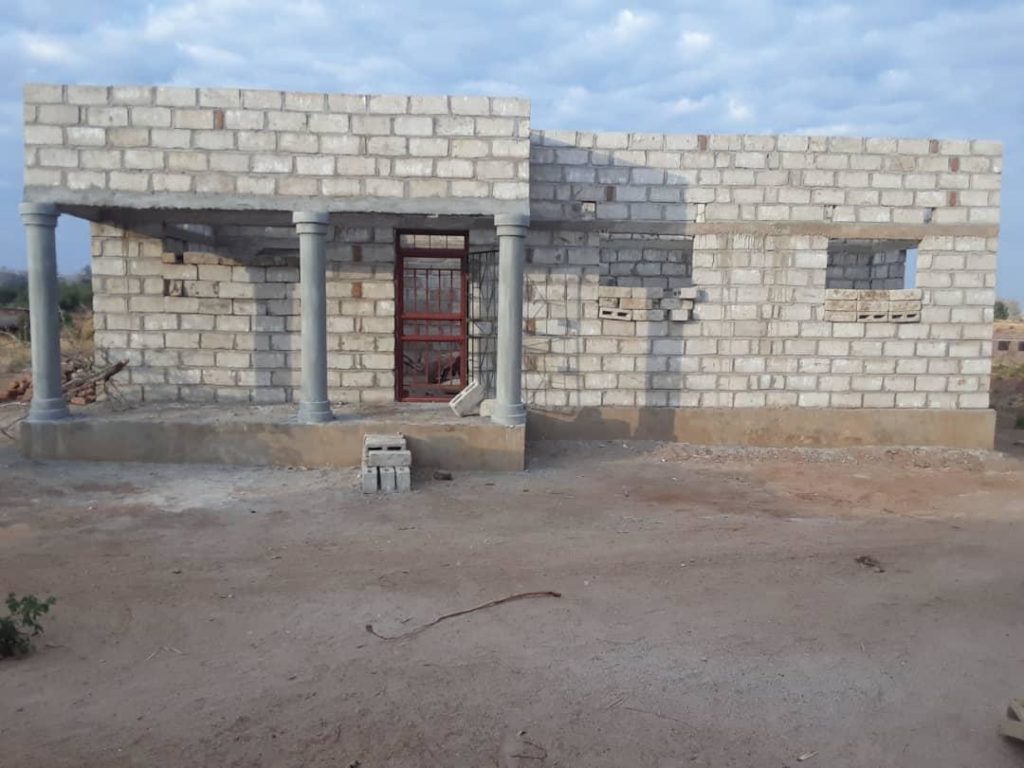
Mr Tembo was able to purchase a motorbike worth 1,010.66 Euros. He has also built a house valued at 90,000 ZMW which is equivalent to 4,211.07 Euros. In addition, he has also managed to reinvest in sasso chicken by building a poultry house worth 22,000 ZMW (approximately 1,234.69 Euros). With his multiple streams of income, Mr Tembo now makes a steady income from selling chickens and eggs.

